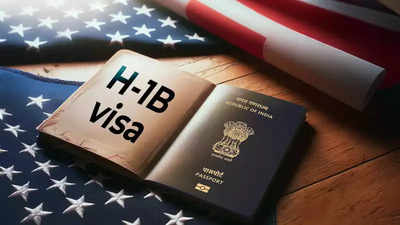
AI image The final H-1B modernisation rule, revises the definition of an employer. This will enable entrepreneurs to be eligible for an H-1B status – in other words, their own entity can sponsor them for this work visa. Elon Musk may have faced challenges in his immigrant path, if this new rule is not rescinded by the incoming Trump administration, it will help future entrepreneurs.
At present, the majority of the entrepreneurs enter the US on an H-1B visa and spend many years working for an employer before obtaining a green card – which alone enables them to set up their own venture. Given the decades-long wait time for an employment-linked green card for Indians, this policy change will help many aspiring Indian entrepreneurs. In the backdrop of this change, the US department of homeland security (DHS) stated,"If more entrepreneurs are able to obtain H1-B status to develop their business enterprise, the US could benefit from the creation of jobs, new industries, and new opportunities.

” Kripa Upadhyay, US-based immigration attorney said, “Among the many changes, the one I’m most excited to see come to fruition is what is likely to be the closest US can get to a stand-alone ‘startup’ visa.” Mitch Wexler, partner at Fragomen, a global immigration law firm, told TOI, “Guard rails have also been built in. The regulation clarifies that H-1B beneficiaries who have a controlling interest in the entity sponsoring them may be eligible for H-1B status, as long as they perform H-1B-caliber specialty occupation duties a majority of the time.
Further, the initial and first extension of suchpetitions will be limited to 18 months, rather than the normal H-1B maximum petition validity period of three years.” However, there may be some challenges. Sameer Khedekar, founder of Vanguard Visa Law, an immigration law pointed out, “While these changes clarify eligibility for startup founders and 'beneficiary-owners,' their impact on early-stage entrepreneurs remains to be seen, as startups often lack contracts or funding to demonstrate the existence of a bona fide H-B role.
Beneficiary-owners who don't yet have customer contracts or substantial funding will need to meticulously document business viability to meet these updated standards with detailed business plans, proof of product development, letters of interest or intent, market validation, and/or industry presence. “ But, the new rule definitely ushers in winds of change..











